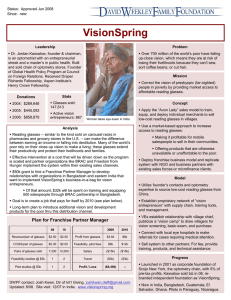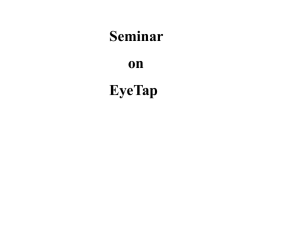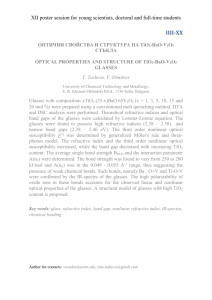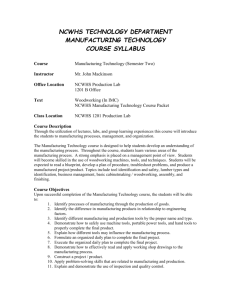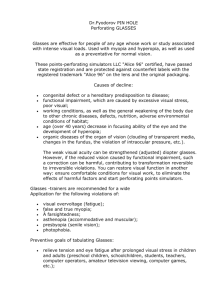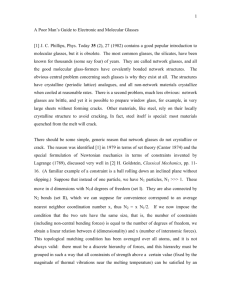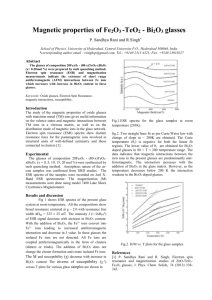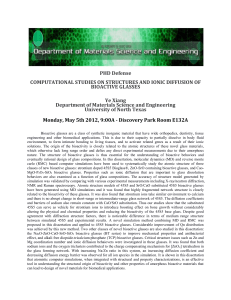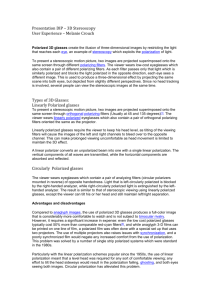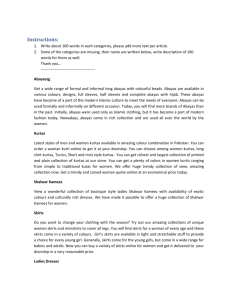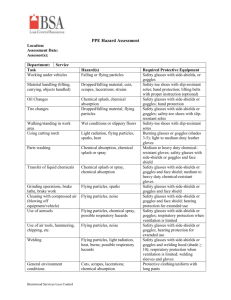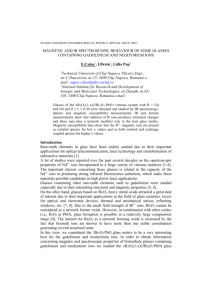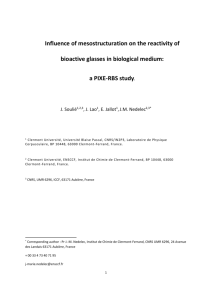James Thurber
advertisement
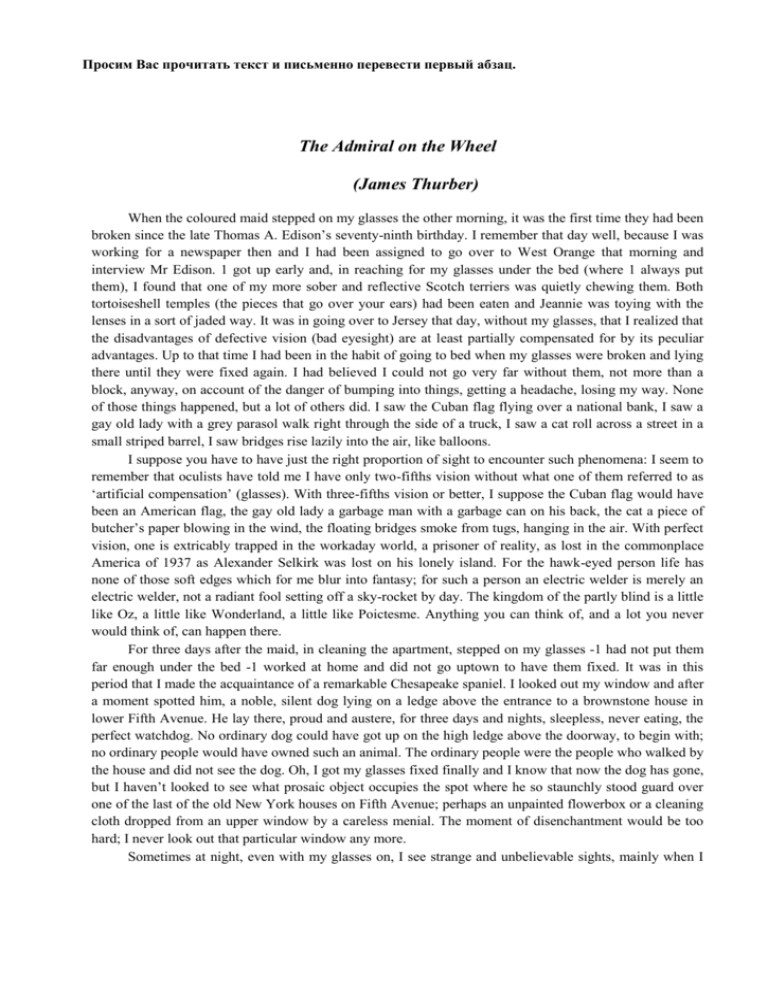
Просим Вас прочитать текст и письменно перевести первый абзац. The Admiral on the Wheel (James Thurber) When the coloured maid stepped on my glasses the other morning, it was the first time they had been broken since the late Thomas A. Edison’s seventy-ninth birthday. I remember that day well, because I was working for a newspaper then and I had been assigned to go over to West Orange that morning and interview Mr Edison. 1 got up early and, in reaching for my glasses under the bed (where 1 always put them), I found that one of my more sober and reflective Scotch terriers was quietly chewing them. Both tortoiseshell temples (the pieces that go over your ears) had been eaten and Jeannie was toying with the lenses in a sort of jaded way. It was in going over to Jersey that day, without my glasses, that I realized that the disadvantages of defective vision (bad eyesight) are at least partially compensated for by its peculiar advantages. Up to that time I had been in the habit of going to bed when my glasses were broken and lying there until they were fixed again. I had believed I could not go very far without them, not more than a block, anyway, on account of the danger of bumping into things, getting a headache, losing my way. None of those things happened, but a lot of others did. I saw the Cuban flag flying over a national bank, I saw a gay old lady with a grey parasol walk right through the side of a truck, I saw a cat roll across a street in a small striped barrel, I saw bridges rise lazily into the air, like balloons. I suppose you have to have just the right proportion of sight to encounter such phenomena: I seem to remember that oculists have told me I have only two-fifths vision without what one of them referred to as ‘artificial compensation’ (glasses). With three-fifths vision or better, I suppose the Cuban flag would have been an American flag, the gay old lady a garbage man with a garbage can on his back, the cat a piece of butcher’s paper blowing in the wind, the floating bridges smoke from tugs, hanging in the air. With perfect vision, one is extricably trapped in the workaday world, a prisoner of reality, as lost in the commonplace America of 1937 as Alexander Selkirk was lost on his lonely island. For the hawk-eyed person life has none of those soft edges which for me blur into fantasy; for such a person an electric welder is merely an electric welder, not a radiant fool setting off a sky-rocket by day. The kingdom of the partly blind is a little like Oz, a little like Wonderland, a little like Poictesme. Anything you can think of, and a lot you never would think of, can happen there. For three days after the maid, in cleaning the apartment, stepped on my glasses -1 had not put them far enough under the bed -1 worked at home and did not go uptown to have them fixed. It was in this period that I made the acquaintance of a remarkable Chesapeake spaniel. I looked out my window and after a moment spotted him, a noble, silent dog lying on a ledge above the entrance to a brownstone house in lower Fifth Avenue. He lay there, proud and austere, for three days and nights, sleepless, never eating, the perfect watchdog. No ordinary dog could have got up on the high ledge above the doorway, to begin with; no ordinary people would have owned such an animal. The ordinary people were the people who walked by the house and did not see the dog. Oh, I got my glasses fixed finally and I know that now the dog has gone, but I haven’t looked to see what prosaic object occupies the spot where he so staunchly stood guard over one of the last of the old New York houses on Fifth Avenue; perhaps an unpainted flowerbox or a cleaning cloth dropped from an upper window by a careless menial. The moment of disenchantment would be too hard; I never look out that particular window any more. Sometimes at night, even with my glasses on, I see strange and unbelievable sights, mainly when I am riding in an automobile which somebody else is driving (I never drive myself at night out of fear that I might turn up at the portals of some mystical monastery and never return). Only last summer I was riding with someone along a country road when suddenly I cried at him to look out. He slowed down and asked me sharply what was the matter. There is no worse experience than to have someone shout at you to look out for something you don’t see. What this driver didn't see and I did see (two-fifths vision works a kind of magic in the night) was a little old admiral in full-dress uniform riding a bicycle at right angles to the car I was in. He might have been starlight behind a tree, or a billboard advertising Moxie; I don’t know - we were quickly past the place he rode out of; but I would recognize him if I saw him again. His beard was blowing in the breeze and his hat was set at a rakish angle, like Admiral Beatty’s. He was having a swell time. The gentleman who was driving the car has been, since that night, a trifle stiff and distant with me. I suppose you can hardly blame him. To go back to my daylight experiences with the naked eye, it was me, in case you have heard the story, who once killed fifteen white chickens with small stones. The poor beggars never had a chance. This happened many years ago when I was living at Jay, New York. I had a vegetable garden some seventy feet behind the house, and the lady of the house had asked me to keep an eye on it in my spare moments and to chase away any chickens from neighbouring farms that came pecking around. One morning, getting up from my typewriter, I wandered out behind the house and saw that a flock of white chickens had invaded the garden. I had, to be sure, misplaced my glasses for the moment but I could still see well enough to let the chickens have it with ammunition from a pile of stones that I kept handy for the purpose. Before I could be stopped, I had riddled all the tomato plants in the garden, over the tops of which the lady of the house had, the twilight before, placed newspapers and paper bags to ward off the effects of frost. It was one of the darker experiences of my dimmer hours. Some day, I suppose, when the clouds are heavy and the rain is coming down and the pressure of realities is too great, I shall deliberately take my glasses off and go wandering out into the streets. I daresay I may never be hearв of again (I have always believed it was Ambrose Bierce’s vision and not his whim that caused him to wander into oblivion). I imagine I’ll have a remarkable time, wherever I end up.


